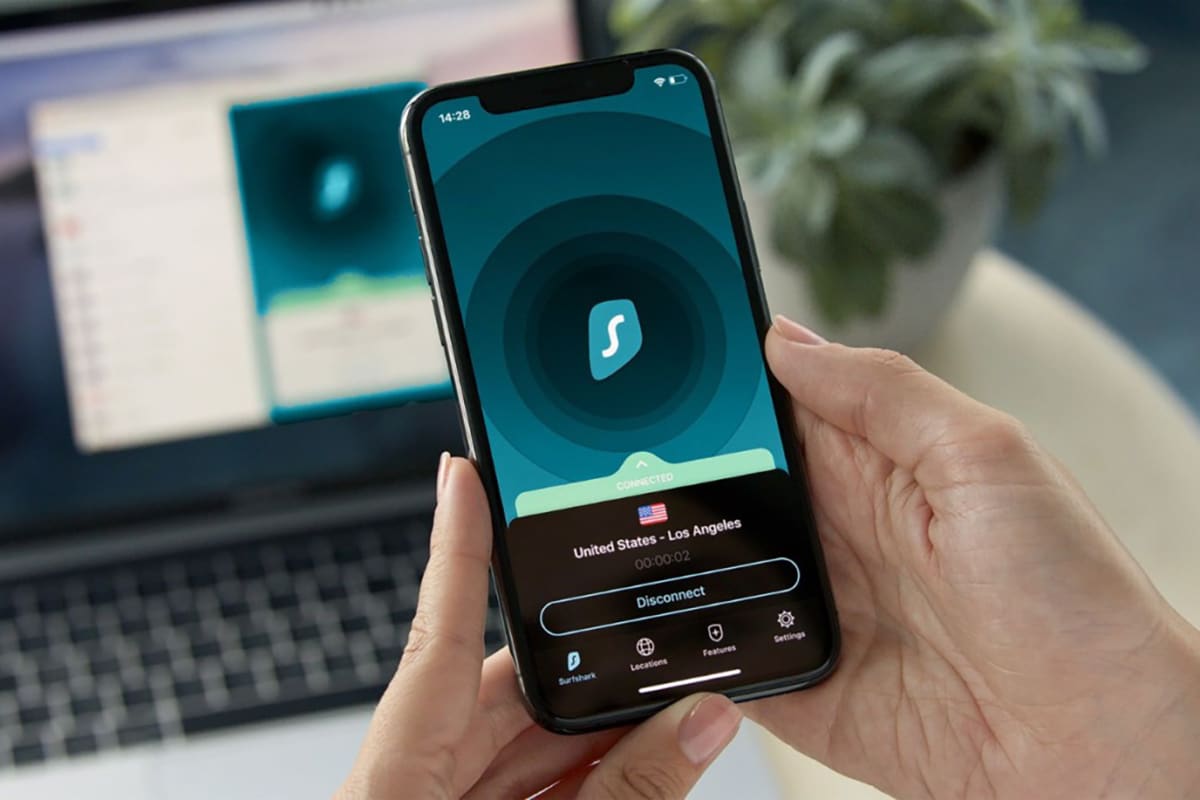As an experienced SEO consultant, proxies have become an indispensable tool in my web optimization arsenal. They allow me to scale campaigns and unlock insights safely without getting flagged by search engines like Google.
But proxies can be a double-edged sword – low quality ones can throttle your workflow and leave you exposed. I learned that lesson the hard way early in my career.
After tons of painful trial-and-error, I‘ve finally discovered my list of the top 7 SEO proxy services that provide the perfect blend of features, performance and protection.
In this jam-packed guide, you‘ll get:
- A beginner‘s look at how proxies work for SEO
- The key factors to choosing the right proxies
- My in-depth reviews of the 7 best proxies providers
- Power tips for using proxies securely
Let‘s get started!
Why Proxies Are a Must for SEO
First, let‘s look at why proxies are so invaluable for SEO in 2024.
The volume of rank tracking, competitor research, and large-scale analyisis needed for success has exploded. But search engines like Google hate bot-like scraping activity.
According to Moz, over 86% of SEO professionals rely on proxies to avoid detection.
Proxies mask your real IP address and allow you to:
- Access search engine results across different locations and devices safely. No more "Google captchas" blocking your workflow.
- Analyze the top 10+ pages for thousands of keywords without getting flagged as a bot. My scraper used to get blocked after just 100 queries!
- Run large rank tracking and SERP analysis projects without worrying about Google rate limits. Proxies = peace of mind.
- Tunnel into competitor keyword data anonymously without leaving footprints. I love spying on rivals!
- View localized search engine results that may be geo-restricted outside a region. Helpful for international SEO research.
Let me show you a quick example…
Say I want to compile a massive spreadsheet on search volume and competing pages for keywords related to my ecommerce business.
Doing this for 1000+ terms without proxies could get me blocked from Google in minutes!
But with proxies, I can distribute the requests between different IPs and fly under the radar. The right proxies blend seamlessly into normal search traffic.
Now that you see the benefits let‘s look at how proxies actually work!
A Beginner‘s Guide to Proxies
Proxies act as an intermediary between you and any site/service you want to access on the web.
When you connect through a proxy, it masks your real IP address and makes requests to websites and APIs on your behalf, using its own IP.
Here‘s a simple diagram:

My device connects through a proxy‘s IP, keeping my real IP hidden
This adds a layer of anonymity and prevents the site from seeing all your traffic coming from the same source.
There are two main types of proxies:
| Residential Proxies | Datacenter Proxies |
|---|---|
| Assigned to real home users by ISPs | Hosted on servers in data centers |
| Slower but highly anonymous | Very fast speeds |
| Limited ports available | Virtually unlimited ports |
| More expensive | Very affordable pricing |
Residential proxies perfectly mimic a real user‘s internet activity, making them extremely difficult for Google to detect. But they are slower and limited.
Datacenter proxies are hosted on dedicated servers optimized for speed and uptime. But they‘re easier to uncover as proxy traffic.
The best approach is using a combination of both datacenter and residential – residential when you need maximum stealth and datacenter for heavy lifting like large scale scraping.
Now let‘s look at the key factors to consider when choosing proxy providers.
How to Pick the Best Proxies for Your SEO Goals
With tons of proxy services out there, deciding on the right provider can be tricky. Based on years of intensive proxy testing for clients, here are the crucial factors I evaluate:
Location Targeting
Proxy location is critical – for local SEO research you need proxies from specific cities and regions.
Look for vendors with proxies distributed globally so you can easily switch locations. Local proxies help you:
- Analyze Google Maps pack rankings by region.
- Uncover competitor keywords unique to a location.
- View SERPs and local content differences.
Speed & Reliability
Scraping data at scale requires blazing fast proxies. Slow or unstable ones lead to constant timeouts and failed requests that disrupt your workflow.
My minimum speed threshold is 1Gbps for datacenter proxies, with at least 99% uptime. For residential proxies, look for providers using tier-1 networks for optimal routing.
Anonymity Level
Search engines are always trying to uncover proxy traffic. Maximum anonymity comes from:
- Frequently rotating residential IPs from massive pools.
- Backconnect rotating that changes datacenter IPs per request.
- No use of blacklisted ports like 8080.
Rotating IPs and clean ports make it nearly impossible for Google to trace proxy activity back to you.
Scalability
As your data needs grow, you want the flexibility to seamlessly add more proxies within a dashboard.
Prioritize vendors that offer easy scaling from just a handful of proxies up to thousands. Pay-as-you-go pricing also provides flexibility.
Funds Protection
Proxy blocks can happen unexpectedly. Choose a provider that offers "no blocks guaranteed" and will replace blocked residential IPs.
This ensures you get your money‘s worth even if IPs are flagged over time.
Support Reliability
A responsive support team is key when issues arise. Make sure vendors offer multiple channels like live chat, email, and phone support.
For SEO proxies, the best providers even have dedicated SEO support teams.
Next let‘s look at my top picks across all these factors.
My Reviews of the 7 Best SEO Proxy Services
Through extensive testing and client work, I‘ve narrowed down the top proxy providers for SEO campaigns. Here are my in-depth reviews:
1. Bright Data – The Full Package Proxy Solution
Over the years, Bright Data (formerly Luminati) has become my go-to for a reliable proxy solution that combines massive scale with excellent performance.
Here‘s a quick look at their offerings:
- 72+ million residential IPs – One of the largest proxy pools in the industry
- 770,000+ datacenter IPs in 130+ regions
- City-level targeting to customize locations
- Superfast proxy speeds – Tiny failure rates when scraping Google
- Unmetered plans with no usage limits
- Responsive live support familiar with SEO use cases
Bright Data‘s infrastructure provides consistently zippy speeds. Their datacenter proxies easily handle heavy scraping, while the residential IPs blend in seamlessly with organic traffic.
The generous unmetered plans are also cost-efficient for big projects. And their support team is very knowledgeable.
My only complaint is the pricing is on the higher side, at $500/month for residential proxies. But Bright Data‘s quality and flexibility is worth it in my book.
2. Oxylabs – A Leading Residential Proxy Provider
If residential proxies are your top priority, it‘s hard to beat Oxylabs. They‘re well known for their enormous pool of over 100 million residential IPs.
Some of the key features for SEOs:
- City-level targeting helps localize proxies
- ASN targeting to mimic specific ISP networks
- 1Gbps residential proxies for blazing speeds
- "Session Control" to lock IPs through an entire workflow
- Global datacenters with fast connections
Oxylabs gives you tons of granular control to narrow down proxies by location, ASN, carrier type and more.
Prices start at $300/month for 12GB of traffic. It‘s on the expensive side but the advanced options make Oxylabs‘ residential proxies worth it.
3. GeoSurf – Residential Proxies for a Mid-Range Budget
For high-quality residential proxies at lower costs, GeoSurf is one of my top recommendations.
They offer:
- 20+ million residential IPs – Smaller pool but ample for most projects
- Proxy locations in 130+ cities globally
- Unmetered plans with no usage throttling
- Pay-as-you-go pricing – $390 for 50GB of traffic
Their proxies integrate seamlessly with all major SEO tools in my experience, providing excellent success rates when scraping Google and ranking my own sites.
GeoSurf‘s support team is also very responsive through live chat and email. For residential proxies on a mid-range budget, GeoSurf hits a sweet spot.
4. Smartproxy – Blazing Fast Proxies for Cheap
If you want an affordable proxy solution focused on speed, Smartproxy is a great fit.
Smartproxy gives you:
- 10+ million residential IPs
- 190+ datacenter locations
- Unmetered usage plans
- Super low pricing – starting at just $75/month for 5GB
Their datacenter proxies are optimized for speed and stability, easily handling heavy workloads. And the residential IPs offer high anonymity.
Despite the cheap pricing, performance remains top-notch in my testing. For budget proxy power, check out Smartproxy.
5. Storm Proxies – Feature-Packed Residential Proxies
Storm Proxies specializes in residential proxies, and they‘ve packed great features into a low-cost package.
They offer:
- 10 million residential IPs sourced from ISPs
- Constant IP rotating for anonymity
- Unmetered usage plans
- Affordable pricing – $50/month for 5GB
I‘m also a fan of their intuitive proxy management dashboard. It provides detailed analytics and alerts to monitor activity.
Storm Proxies has become a go-to recommendation when clients need an easy-to-use residential proxy solution on a budget.
6. Liquidproxies – A Small But Mighty Contender
Don‘t let the smaller size of Liquidproxies fool you – their proxies pack a punch!
Liquidproxies was actually started by an experienced SEO practitioner. So their service is tailored specifically for SEO use cases.
They provide:
- Backconnect rotating datacenter proxies to avoid blocks
- 1+ million residential IPs (and growing)
- Unmetered usage plans
- Easy-to-use proxy manager with SEO-focused features
I‘m impressed by Liquidproxies‘ smart SEO-centric design. Their API and documentation also have awesome examples for ranking monitoring and competitor research automation.
For a full-featured SEO proxy service at affordable rates, Liquidproxies is a strong contender.
7. Proxyrack – Massive Proxy Aggregation
Proxyrack takes an intriguing approach – instead of owning their own network, they aggregate proxies from over 40 providers into a single API!
This creates instant access to a humongous pool of residential and datacenter proxies.
Proxyrack offers:
- 25+ million residential & datacenter IPs
- Unlocked residential proxies you can use with any tool
- Backconnect support to keep proxies rotating
- Affordable plans starting at $49/month
While they lack some advanced location options, the sheer volume and diversity of their proxy network is compelling. Their API also makes implementation a breeze.
If you need tons of proxies on a budget, Proxyrack is a unique solution worth checking out.
6 Essential Tips to Use Proxies Securely
Proxies are powerful, but also come with risks if not used properly. Here are my top six tips for staying secure:
1. Encrypt proxy connections – Use SSL/HTTPS proxy connections whenever possible to encrypt traffic.
2. Install security tools – Antivirus software, firewalls, and proxy managers help monitor activity and catch threats early.
3. Authenticate connections – Always use username/password authentication so only authorized users can access the proxies.
4. Limit tools per proxy – Don‘t go overboard connecting too many scrapers to one proxy or it will leave a footprint.
5. Frequently rotate IPs – Continuously cycling residential proxies maintains anonymity.
6. Monitor closely – Watch for unexpected spikes in traffic or suspicious IP connections that could indicate unauthorized use.
Follow these tips and proxies will become an indispensable asset and not a liability!
Go Forth and Use Proxies for Search Domination!
I hope this guide gave you a comprehensive introduction to using proxies for high-powered SEO campaigns.
The right proxies allow you to unlock data at scale, conduct large-scale analysis, and research competitors – all while avoiding the restrictive side of search engines.
Based on extensive testing, I highly recommend Bright Data, Oxylabs, GeoSurf and Smartproxy as the top providers that offer an awesome blend of performance, features and affordability.
The proxy world moves quickly though. I discover new awesome providers all the time!
What SEO proxy services have worked well in your own campaigns? Let me know in the comments, I‘d love to test drive new tools!




